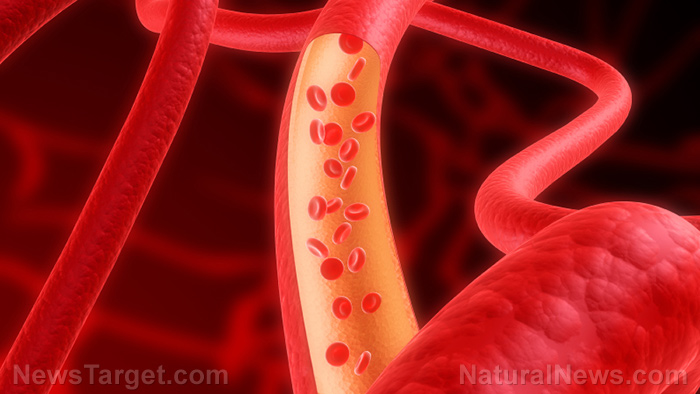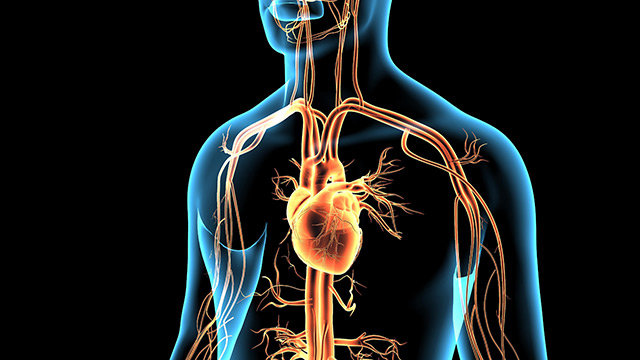For the elderly, getting more natural antioxidants in your diet can reduce the risk of heart disease
09/04/2019 / By Evangelyn Rodriguez

Antioxidants are beneficial substances that boost the immune system and protect cells from damage caused by free radicals. Stress, pollution, and other environmental factors trigger the production of free radicals, which are unstable molecules that contribute to the development of diseases and premature aging. The body produces its own antioxidants, but excessive exposure to UV radiation and the activity of some medications can deplete the body’s antioxidant stores. Therefore, it is important to replenish this supply by getting antioxidants from food. According to researchers from the Jagiellonian University Medical College in Poland, the elderly, in particular, are in need not only of proper nutrition but also of a diet rich in natural antioxidant sources. Intake of high amounts of antioxidants can reduce their risk of cardiovascular disease.
Antioxidants and heart disease
Observational population-based studies suggest that increased dietary intake of antioxidants is linked to a lower risk of heart disease. They also suggest that antioxidant nutrients like vitamins A, C, and E share inverse relationships with certain biomarkers of heart disease, such as coronary artery calcium and carotid thickness. For instance, the Coronary Artery Risk Development In Young Adults (CARDIA) study published in the American Journal of Epidemiology associated low to marginally low plasma ascorbic acid (vitamin C) levels with a higher prevalence of coronary artery calcium, especially among men. Coronary artery calcium is indicative of the buildup of arterial plaque — atherosclerosis — which leads to heart attack and stroke.
Alpha- and beta-carotene are also associated with a lower risk of atherosclerosis. According to Italian researchers, these carotenoids protect against early atherogenesis or the formation of fatty plaque in the arteries. In their study involving 392 middle-aged men and women, they found that when blood levels of these compounds are high, atherosclerosis risk is low, suggesting an inverse association between alpha- and beta-carotene and heart disease. Alpha- and beta-carotene are plant pigments with antioxidant properties. They also serve as precursors of vitamin A and are found in orange-, yellow-, and green-colored fruits and vegetables. (Related: Diet high in antioxidants slashes heart disease risk in women.)
The elderly should have a diet rich in natural antioxidants
For their study, Polish researchers evaluated the total antioxidant intake of the elderly in Krakow and the contribution of certain food products to their dietary antioxidant intake. The researchers also looked at the elderly’s consumption of dietary fats and the frequency of the participants’ fats consumption. The researchers agreed with previous studies which suggest that proper intake of fats and antioxidants from food offers significant protection against coronary heart disease.
The study participants were 143 older adults (73 women and 70 men) aged 65 to 80 who were not under specialist medical control. The researchers used food frequency questionnaires (FFQs) to evaluate their dietary antioxidant index (DAI), which they expressed in terms of FRAP or the ability to reduce oxidized Fe3+ (iron) to Fe2+ via electron transfer. This ability is what antioxidants use to neutralize free radicals inside the body. The researchers also estimated the participants’ daily fat intake using 24-hour nutritional recall and the frequency of their fats consumption using FFQs.
The researchers reported that a large percentage of the elderly participants had FRAP values ranging from 25 to 35 millimoles per liter (mmol/l). The highest percentage (32 percent) came from fruits, while whole grains and cereal-based products contributed 23.6 percent and beverages contributed 24 percent. Vegetables contributed only 7.1 percent. The contribution of other food products was even smaller.
Meanwhile, the consumption of total fats and saturated fatty acids among the elderly exceeded the recommended amounts for their age. Their consumption of mono- and polyunsaturated fatty acids was also not in accordance with recommendations. The researchers noted that the elderly consumed high amounts of cakes and animal fats from sausages and butter, and low amounts of vegetable oils, fish, nuts, and seeds.
The researchers concluded that the majority of the elderly were making wrong nutritional choices. They suggest enrichment in natural antioxidants from diet and the normalization of fats consumption, because these factors contribute to the primary and secondary prophylaxis of cardiovascular disease.
Sources include:
Submit a correction >>
Tagged Under:
aging, alpha-carotene, alternative medicine, animal fats, antioxidants, atherosclerosis, beta carotene, carotenoids, clean food, diet, disease treatments, fats consumption, fatty acids, food cures, food is medicine, fruits, functional food, grains, healthy fats, heart disease, heart health, natural cures, natural medicine, nutrients, nutrition, prevention, research, saturated fats, vegetables, vitamin A, vitamin C, vitamin E
This article may contain statements that reflect the opinion of the author
RECENT NEWS & ARTICLES
COPYRIGHT © 2017 HEART NEWS



















